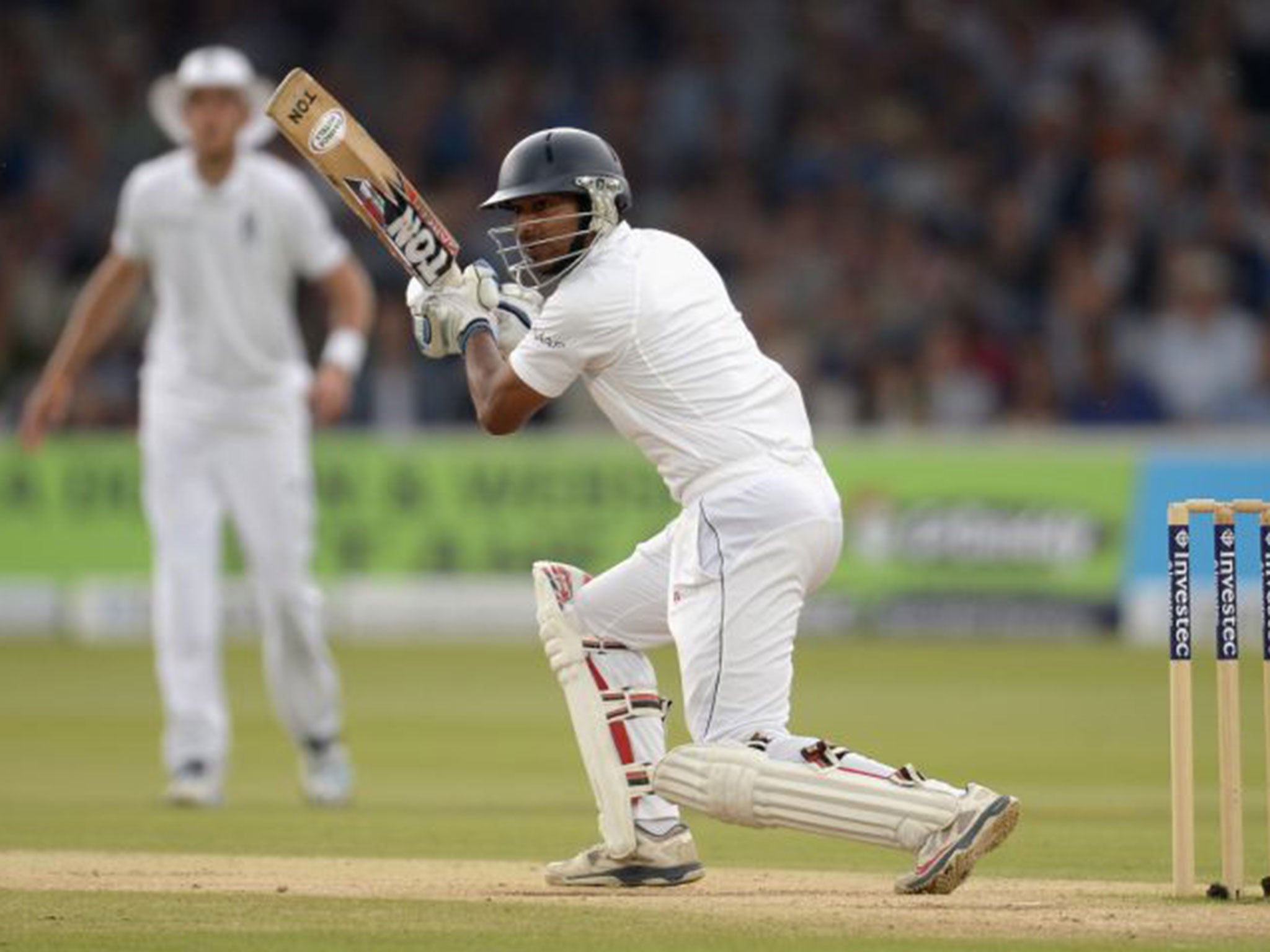England v Sri Lanka: Farewell to a near-perfect pair – we won't see their like again

As the Lord's crowd enjoyed the sight of two cricket greats batting together for perhaps the last time at the ground, some might have wondered whether their farewells would hold a deeper significance for the game.
Kumar Sangakkara and Mahela Jayawardene know that, almost certainly, this will be their last Test tour of England. Both are as close to perfection as the Test batsman can be: judicious and elegant in their strokes, capable in all conditions and with an intuitive ability to pace an innings.
Sangakkara produced a knock as erudite as the Cowdrey Lecture he delivered here three years ago. Looking for his first Test century at Lord's, Sangakkara was aware that this was probably his last chance to remove that blemish from his record, and he did not miss a beat.
While Jayawardene was not as commanding as his partner and struggled occasionally against the short ball, he generally had the better of England's bowling before he was dismissed for 55. Their partnership, of 126 in 203 deliveries, was a delight to watch.
As sad as it will be to see them fade from view, it will be far more of a shame if they have no worthy heirs, not only in Sri Lanka, but across the world game. Perhaps that is too dramatic a prediction, but the nature of modern cricket is such that there will, logically, be fewer and fewer batsmen like Sangakkara and Jayawardene, Sachin Tendulkar and Rahul Dravid, Ricky Ponting and Brian Lara.
The new stars of cricket will have grown up in the Twenty20 era, and their styles will be tailored accordingly. David Warner, the rampaging Australian, is probably the most effective opening batsman on the planet. He has a fine technique but his game is based on one plan: attack. Warner will not compromise these principles, irrespective of the conditions.
The proof can be found in his strike rate of 73.4, an extraordinary number for a Test player. Virat Kohli, of India, is able to be more circumspect but he, too, is fundamentally a dasher. Twenty20, and its various franchise-based competitions, captures the imagination of the aspiring cricketer at least as much as the five-day game.
There is every chance that young batsmen dream just as much about smashing sixes and scoring at better than a run a ball than they do about crafting a Test century in five or six hours. Not many of them will be as gifted as Warner or Kohli.
Mark Ramprakash played 52 Tests for England and was the most accomplished batsman in the English county game for many years. Now working as a batting consultant both for Middlesex and the England and Wales Cricket Board, Ramprakash has noticed a trend that worries him.
"It does concern me that a lot of young players want to whack it out of the ground," said Ramprakash. "They want to hit it not just for six, but 15 rows back and they want to play a ramp shot and a reverse sweep before they can play an on-drive.
"A lot of young players enjoy playing against the white ball in limited-overs cricket because it does nothing. It doesn't move around in the air. Then they face the red ball, which swings and seams, and all of a sudden their technique is under scrutiny.
"You are seeing a lot of young players who are excellent in one-day cricket but finding the red ball a real challenge, and I suppose that's natural.
"There are a lot of young players asking themselves whether they should just specialise in playing white ball, because if they're doing very well at it, why bother with trying to play first-class and Test cricket?"
Sangakkara and Jayawardene have been just as effective in the limited-overs game during their careers, yet both see Test cricket as the best measure of their talent. It would be a shame if their successors do not share those beliefs.
Subscribe to Independent Premium to bookmark this article
Want to bookmark your favourite articles and stories to read or reference later? Start your Independent Premium subscription today.

Join our commenting forum
Join thought-provoking conversations, follow other Independent readers and see their replies